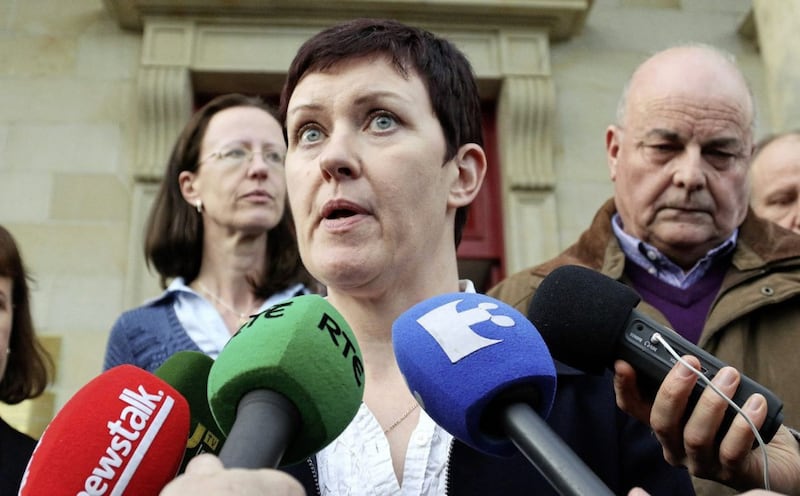Convicted Garda killer and former IRA man Pearse McAuley has been found dead at his home in Co Tyrone.
It was reported on Monday evening that McAuley, who was in his late 50s, had died at his home in Strabane.
He had been jailed for his involvement in a botched robbery in which Detective Garda Jerry McCabe was shot dead in Co Limerick in 1996.
McAuley was convicted of manslaughter in 1999 and was released from prison after serving ten years.

While he was serving his sentence, Sinn Féin unsuccessfully campaigned to have McAuley and three others convicted over the killing released under the terms of the Good Friday Agreement.
The Irish government denied the request, insisting the men were not eligible to be released under the Agreement.
In 2015, the Strabane man was sentenced to 12 years with four years suspended for a brutal attack on his then-wife, Sinn Féin member Pauline Tully, whom he met in 2003 while still in prison.

Ms Tully, who was elected TD for Cavan-Monaghan in 2020, had been stabbed 13 times in the 2014 Christmas Eve attack at the family home in Kilnaleck Co Cavan, which was witnessed by their two young sons, who were aged seven and four.
She survived the attack, and McAuley pleaded guilty to false imprisonment, producing a knife and causing serious harm to Ms Tully. He was also sentenced to four years concurrently for making threats to kill Ms Tully’s brother.
McAuley was released from prison in 2022.
In 1991, McAuley famously escaped from London’s Brixton Prison along with his cellmate while he was awaiting trial on charges of conspiring to murder British brewery executive Sir Charles Tidbury and conspiracy to cause explosions.
After shooting at prison guards the pair managed to escape over a wall and hijacked a car, whose driver was shot in the leg, and McAuley fled to the Republic.
After his release from prison in 2009, he was told he would not face charges in the UK over the Brixton Prison escape as the Crown Prosecution Service said there was “no longer a realistic prospect of a conviction”.
It is understood this was the result of a much-criticised scheme negotiated by Sinn Féin and the Labour government at the time to deal with “on the run” republicans.









